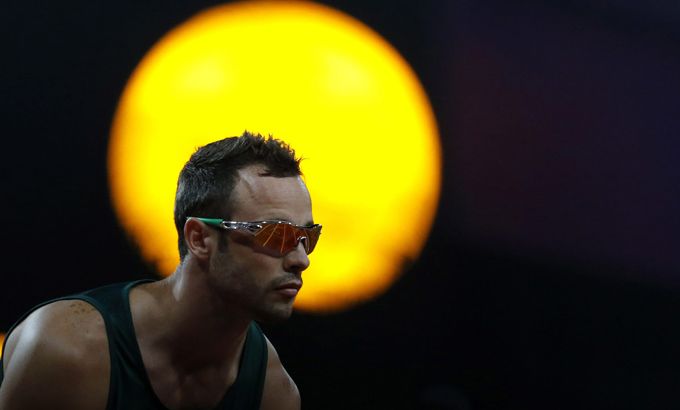
Oscar Pistorius: Abled by his abilities
Paralympic gold medalist talks about growing up thinking his prosthetic legs “looked like different shoes”.
| No subject is off limits in the first ever global talk show hosted from Africa in which Redi Tlhabi talks frankly to inspiring and intriguing personalities from across the world. |
He is one of the most famous athletes on the planet – yet Oscar Pistorius was born without either of his fibula, the bones in the lower leg. He had a double amputation below the knee when he was just 13 months old. But shortly after that he was walking.
In 2012, he became the first disabled athlete ever to run in the able-bodied Olympics. And after that he competed in the Paralympics, where he broke two world records.
But the rise of Oscar Pistorius to the pinnacle of athletic achievement has not been all roses.
Keep reading
list of 4 itemsPalestinian Prisoner’s Day: How many are still in Israeli detention?
‘Mama we’re dying’: Only able to hear her kids in Gaza in their final days
Europe pledges to boost aid to Sudan on unwelcome war anniversary
“I think the term disability has come a long way. Twenty, 25 years ago, it was very uncommon to know somebody with a disability, it was a very taboo subject, it wasn’t spoken about much …. These days we’ve moved away from the word disabled and we look at differently abled. A lot of people living with disabilities – whether they be an amputee or someone in a wheelchair – has found ways to focus on their ability in life rather than the disability,” Pistorius explains.
On this episode of South2North, we talk to the six-time Paralympic gold medalist about disability and ability, fairness and growing up in a typical South African family.
“I grew up thinking my legs looked like different shoes,” he says.
“One of the things that I learnt very early on in my life was that the way I perceived myself was the way other people perceived me and I never perceived myself as wanting to be treated any differently. I played sport with all the other kids in the community …. I just got on with life.”
Among the sports he played were cricket, rugby, water polo and wrestling.
“I was never much of an academic at school so sports had to be my strong point,” he says.
And of the criticisms that have seen some describe him as a “cyborg”, Pistorius responds: “I think you have to have a line that’s drawn because you could easily create a prosthetic leg – there’s a lot of prosthetic legs already around that could provide the user with an advantage. In sports, you are looking at fairness, you are looking at the athlete’s talent and the commitment they have to the sport. It’s important for me to know that I’m competing on an equal footing and to know that whatever times I’m obtaining are not due to any equipment I am using.”
From a man who has shown what can be achieved with a pair of finely-tuned artificial legs and buckets full of self-confidence, to a man who has cloned his entire self. If he is having a bad day, Professor Ishiguro Hiroshi from Osaka University does not have to get out of bed like the rest of us to attend meetings. He has built a robot-like double that is so life-like it sometimes attends meetings on his behalf. He joins the show, as does men’s health expert Dr Shingai Mutambirwa.
South2North can be seen each week at the following times GMT: Friday: 1930; Saturday: 1430; Sunday: 0430; Monday: 0830. |
